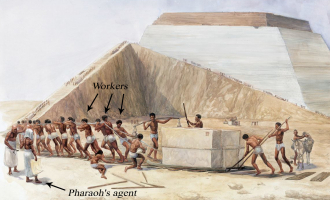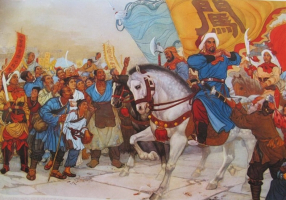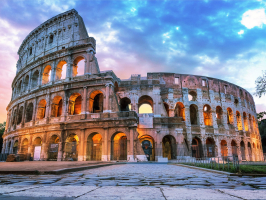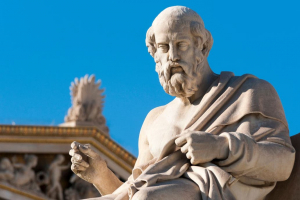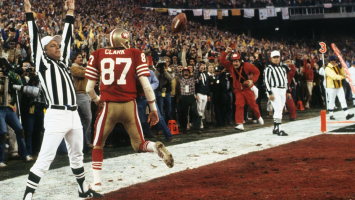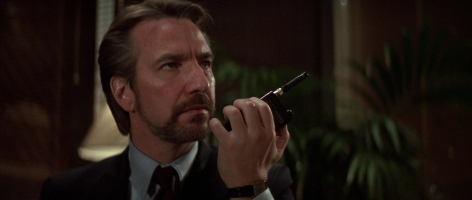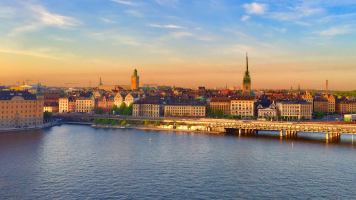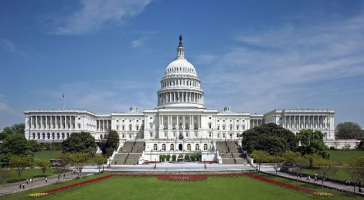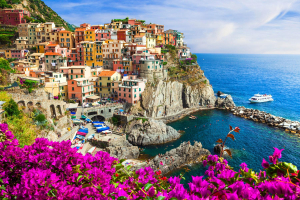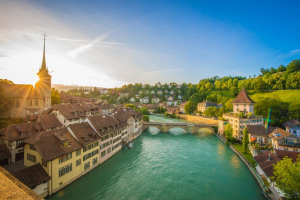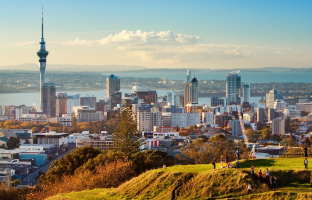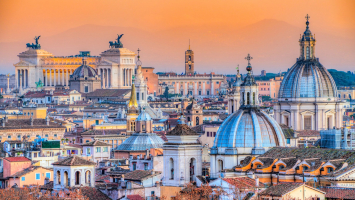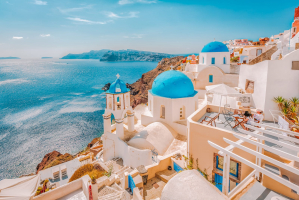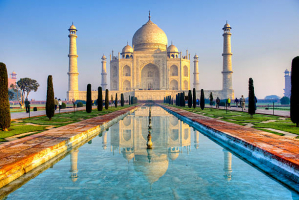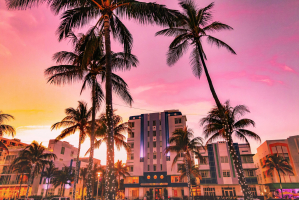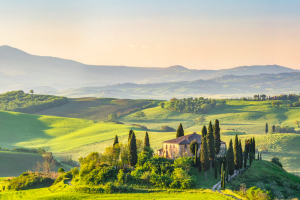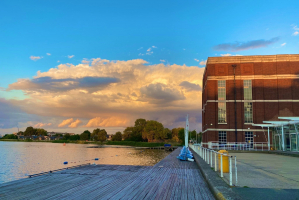Top 5 Important Places in Global LGBTQIA+ History
Although there are many places you might visit, don't you want to go someplace special? The world as a whole is still learning about the history and culture of ... read more...the homosexual community. There are few better ways to educate yourself and show care for others than to travel to significant locations where LGBTQ history was created. The locations that are fundamental to what it means to be homosexual in the modern world are listed below. Read on for more information.
-
The Stonewall Riots of 1969, widely regarded as the single most significant event igniting the gay liberation movement and the contemporary fight for LGBT rights in the United States, took place at the Stonewall Inn, also known as Stonewall, a gay bar and social gathering place in the Greenwich Village neighborhood of Lower Manhattan, New York City. Between Seventh Avenue South and Waverly Place, at 51-53 Christopher Street, was where the first Inn, which ran from 1967 to 1969, was situated.
Shortly after the revolt, the Stonewall Inn in New York fell out of business. Over the years, it was leased as two distinct premises to several other enterprises. In 1987–1989, 51 Christopher Street was home to a pub called Stonewall; after it closed, the old vertical sign was taken down from the building's exterior. The interior finishes of the original Stonewall Inn are gone. A new bar called New Jimmy's at Stonewall Place leased space at 53 Christopher Street in 1990; about a year later, the bar's proprietor changed the name to Stonewall. The Stonewall Inn has been run by the current management since they acquired the bar in 2006. 53 and 51 Christopher Street are privately owned structures.
The Stonewall Inn was the first New York City landmark to receive recognition from the city's landmarks preservation commission for its significance in LGBT history on June 23, 2015, and on June 24, 2016, the Stonewall National Monument was designated as the nation's first national monument devoted to the LGBTQ-rights movement. With 150,000 participants and five million viewers in Manhattan alone, Stonewall 50 - WorldPride NYC 2019 was the greatest worldwide Pride celebration in history. It was organized by Heritage of Pride and improved thanks to a cooperation with the LGBT branch of the I NY program.
Location: 53 Christopher Street, Greenwich Village, Manhattan, New York City
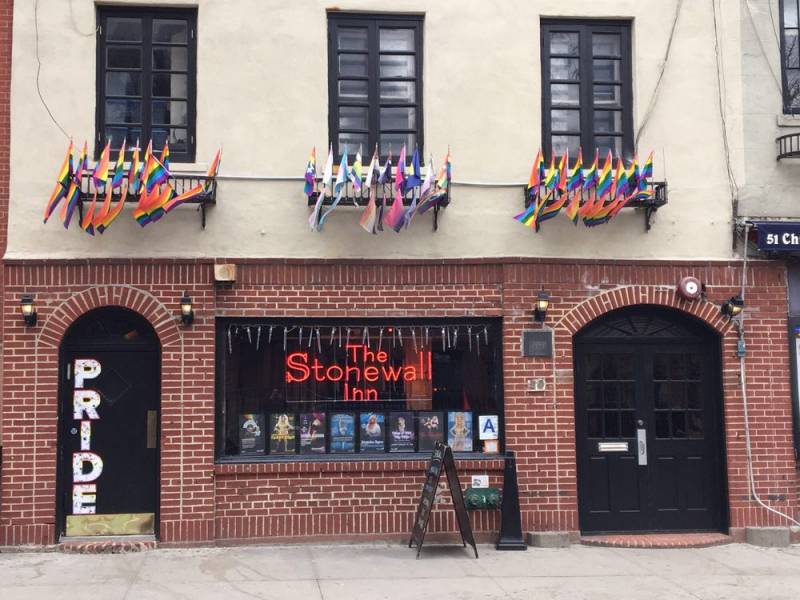
Yelp 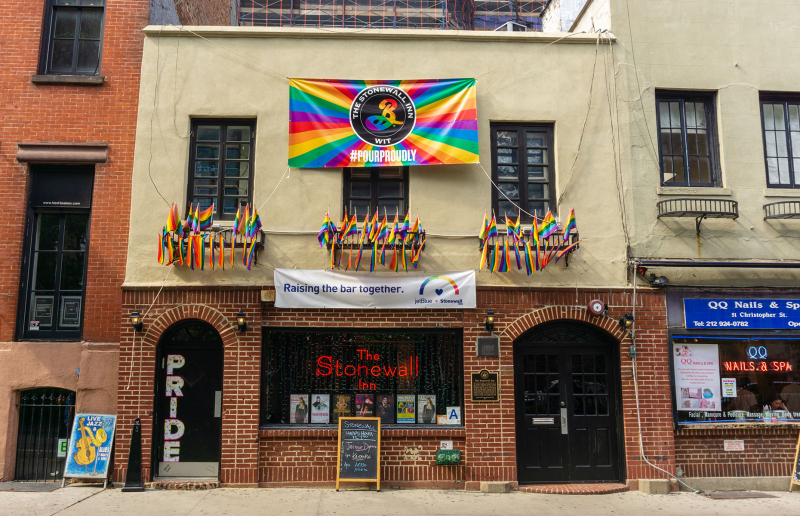
loveexploring.com -
In Berlin, Germany, there is a museum and research center called the Schwules Museum (English: Gay Museum), which has artifacts devoted to LGBTQ+ history and culture. The first museum in the world devoted to LGBT history, it debuted in 1985. Periodicals from 1896 and a collection of images, videos, films, sound recordings, autographs, artwork, and ephemera may be found in the museum archive. There are almost 20,000 books on homosexuality in its collection. The museum moved from its original location at Mehringdamm 61 in Kreuzberg where it had resided since its founding in 1985 to Lützowstraße 73 in Berlin-Mitte in the summer of 2013, more than tripling its display area.
The Berlin Märkisches Museum's popular gay-themed exhibition, "Eldorado - Homosexual Women and Men in Berlin 1850-1950," which took place in the summer of 1984, served as the inspiration for the establishment of the Schwules Museum. It was the first time that a public exhibition of current homosexual life studies had been held in Germany. The Verein der Freunde eines Schwulen Museums in Berlin e.V. (Society of Friends of a Gay Museum in Berlin) was established in 1985 and opened its own museum at Mehringdamm 61 in the Kreuzberg neighborhood that was solely focused on LGBTQ+ issues. Because it also housed the gay nightclub SchwuZ, a gay-friendly café, and the Allgemeine Homosexuelle Arbeitsgemeinschaft, a support group that advocates for LGBTQ+ rights, the building earned the moniker Homo-Hof (literally, "the gay courtyard").
Location: Luetzow Street 73, Berlin, Germany
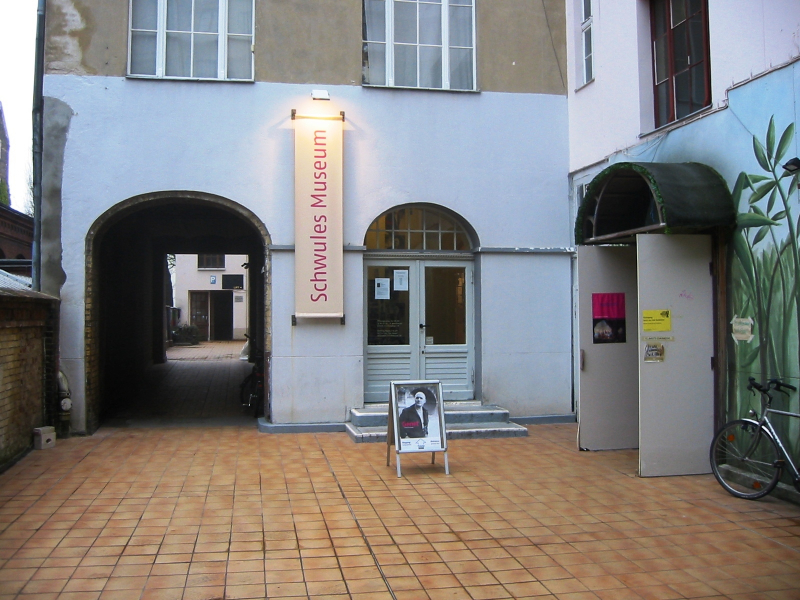
Time Out 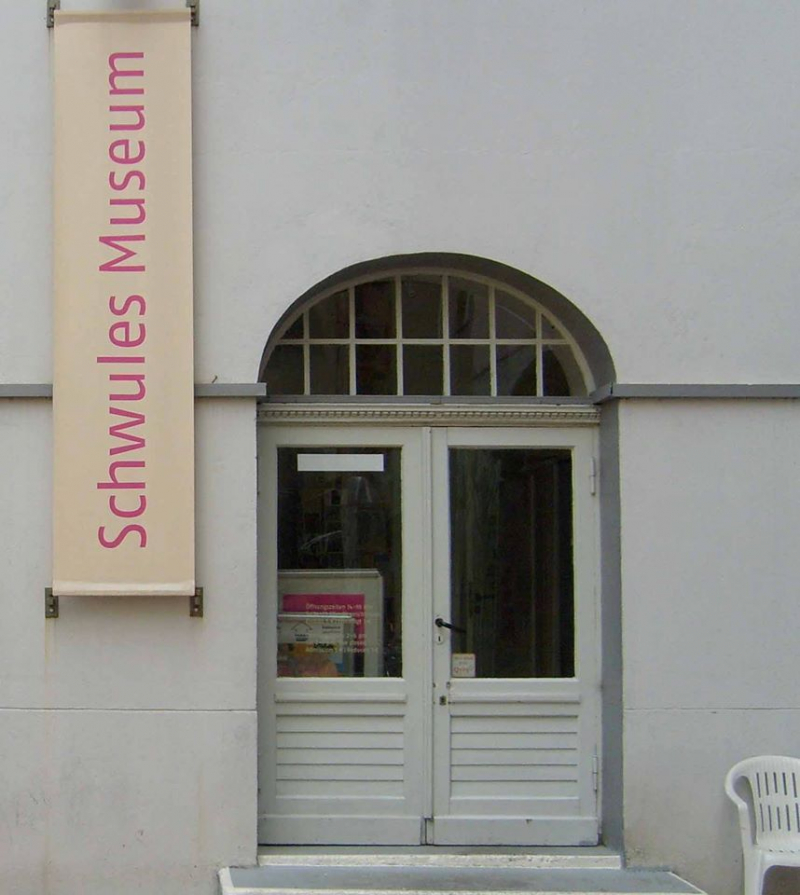
Artist Opportunities -
The oldest LGBT bookstore in the UK is an independent one located in central London called Gay's the Word. The store was established in 1979 by a small number of members of the homosexual socialist organization Gay Icebreakers, who were inspired by the creation and expansion of lesbian and gay bookstores in the United States. Before choosing Marchmont Street in Bloomsbury, a part of the city with a wealth of scholarly and literary connotations, they considered opening the store in Covent Garden, which was at the time being revitalized. With assistance from Ken Livingstone, then a local councillor and eventually Mayor of London, Camden Council's initial reluctance to accept a lease was overturned. It served as England's sole LGBT bookstore for a while.
The bookshop has always served as a gathering place and a source of news and information for lesbians and gay men, including details about LGBT organizations and upcoming events. The piano at the store had the Ivor Novello musical Gay's the Word on it, and it was used for musical evenings. Gay literature were seldom encountered in regular bookshops when the business opened in 1979. Homosexual News had a fantastic and innovative mail order operation, and the early newsletters identified the few radical retailers in the nation that sold gay publications. The LGBT movement was very active at this time in the United States, inspiring a vast amount of writing and leading to the establishment of several small publishing firms.
Homophobic assaults have been made against Gay's the Word on several occasions. Its windows have been smashed as a result of these. On February 9, 2020, someone broke into the store. The two robbers stole from a charity collection tin and ransacked the bookshop before being apprehended inside the establishment while sipping prosecco. The next day, Gay's the Word reopened.
Location: London, United Kingdom
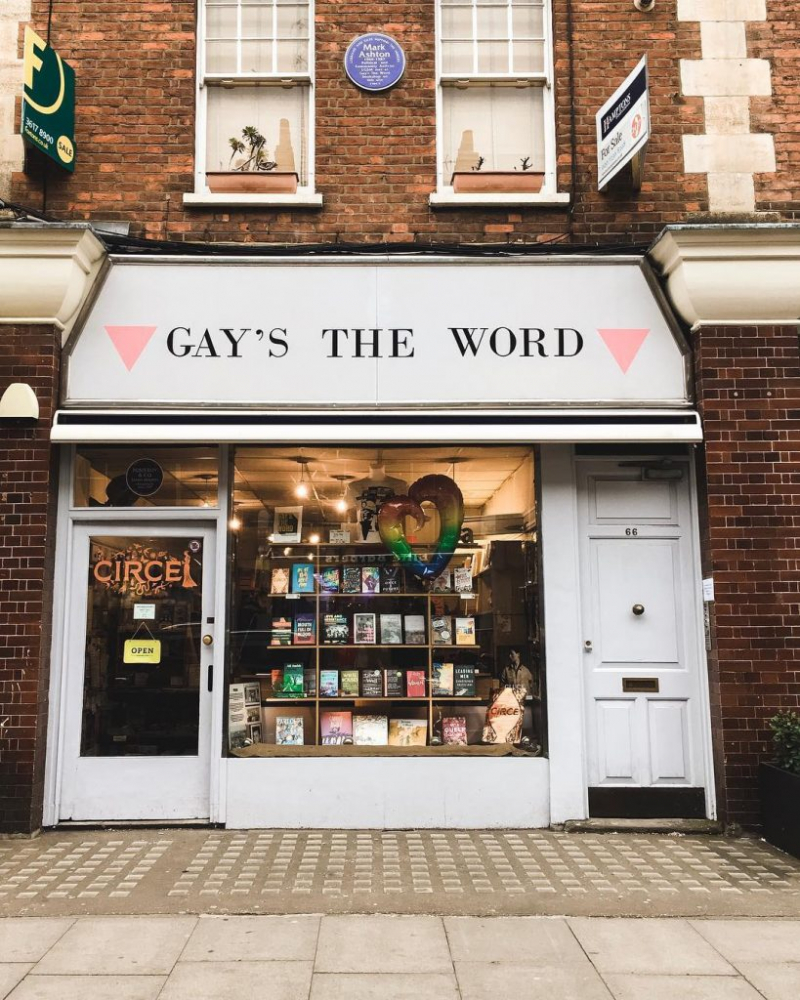
secretldn.com 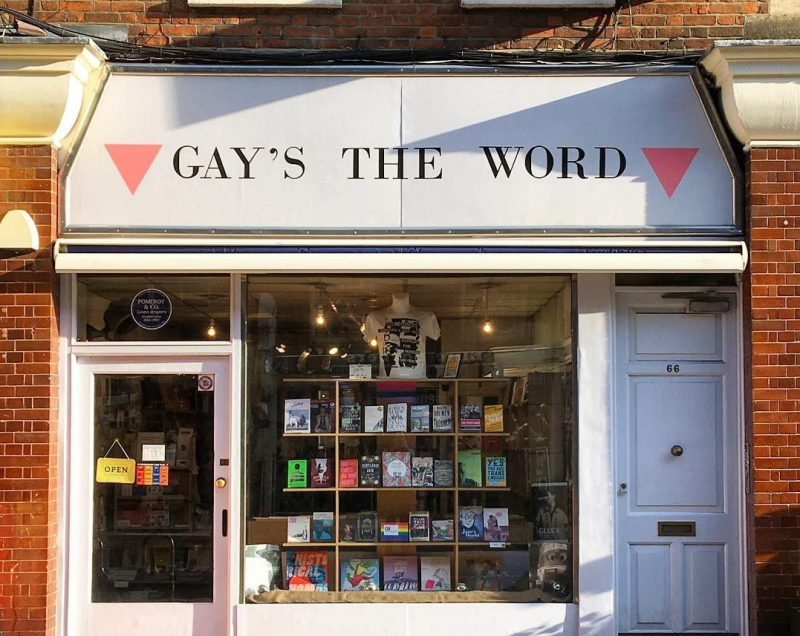
secretldn.com -
One of the oldest homosexual bars in Soho, The Admiral Duncan is located on Old Compton Street in the heart of London. Neo-Nazi David Copeland bombed the bar in 1999, killing three people and injuring 83 others in the process. Dennis Collins, an Irish ex-sailor with wooden legs who resided at the bar, was accused with high treason in June of that year after allegedly hurling stones at King William IV at Ascot Racecourse. Collins was found guilty and given the traditional medieval punishment for high treason—hanging, drawing, and chopping—as his punishment. But his sentence was swiftly changed to life in prison and then he was brought over to Australia.
On April 30, 1999, at about 6:05 p.m., David Copeland, a Neo-Nazi, put a device in a sports bag in the Admiral Duncan. As part of a one-man strategy to incite racial and homophobic tensions, he had set three bombs in London. On the Sunday after the assault, a sizable outdoor gathering was spontaneously organized in Soho Square and attracted hundreds of people. One of the speeches was from the assistant commissioner of the Metropolitan Police, who promised to keep a crime scene van outside the bar staffed exclusively by openly gay and lesbian police officers and use it to interview witnesses and gather evidence until the perpetrator was apprehended. This marked a turning point for the previously often tempestuous relationship between the LGBT community and the Metropolitan Police.
The Admiral Duncan and all other LGBT pubs and businesses operating under Westminster City Council's authority, including those in Soho and Covent Garden, were required to take down their pride flags by the end of 2005. The council asserted that flying the flags would require companies to get advertising permits since doing so would violate their local development plan's prohibition on advertising. Some companies who requested permission to fly flags had their requests denied. Due to criticism from the then-Mayor of London, Ken Livingstone, the I Love Soho movement, and media reports alleging homophobia within the Council, the Council changed its policy and now permits shops to display rainbow flags without seeking permission.
Location: 54 Old Compton Street, London
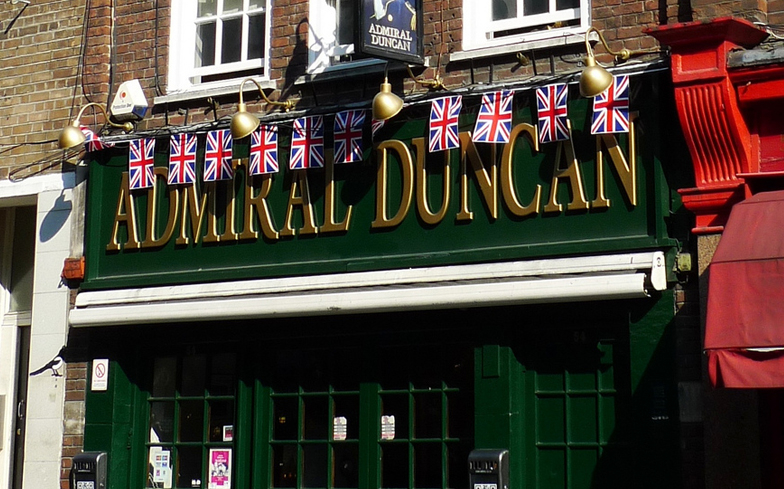
Gay Times 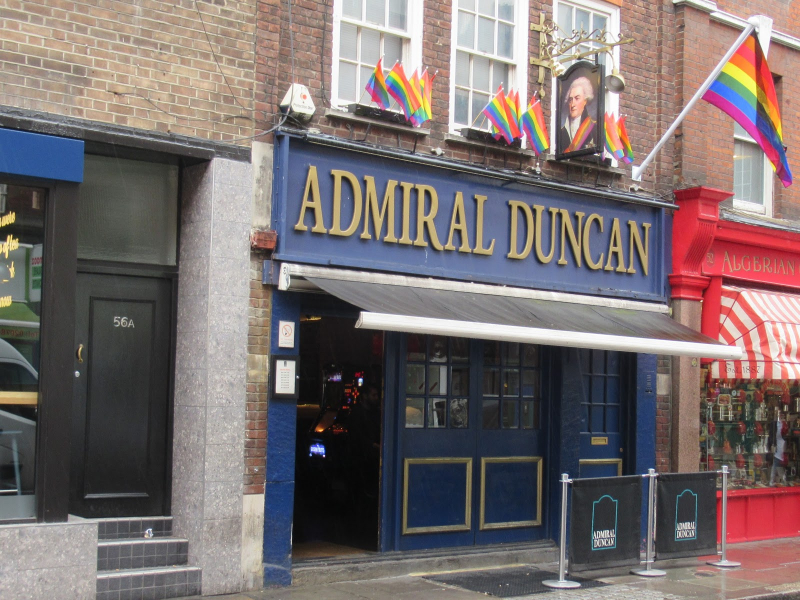
blogspot.com -
The Homomonument is a memorial located in the heart of Amsterdam, the Dutch city. It honors all lesbians and gay people who have endured discrimination because to their sexual orientation. It was the first memorial in the world to honor homosexuals and lesbians who were murdered by the Nazis when it opened on September 5th, 1987. The monument is made up of three big pink granite triangles that are buried in the earth and create a larger triangle when combined. It is situated next to the famed Westerkerk church on the Keizersgracht canal bank. In order to "inspire and encourage lesbians and homosexuals in their battle against denial, oppression, and discrimination", the Homomonument was created.
Wreaths are placed on the memorial in honor of LGBT persecutors at the Netherlands' annual Remembrance Day event on May 4. On Liberation Day the next day, a street party is held at the monument. Three pink granite triangles form the abstract composition known as the Homomonument. The pink triangle was a textile insignia worn in Nazi concentration camps to designate males imprisoned for homosexuality, which also included bisexual men and transsexual women. The pink triangle has historical significance. According to estimates, 100,000 men were detained during the Nazi era, and half of them were imprisoned. The pink triangle later came to represent the liberation of the LGBT community and its fight for equality.
Location: Amsterdam, Netherlands
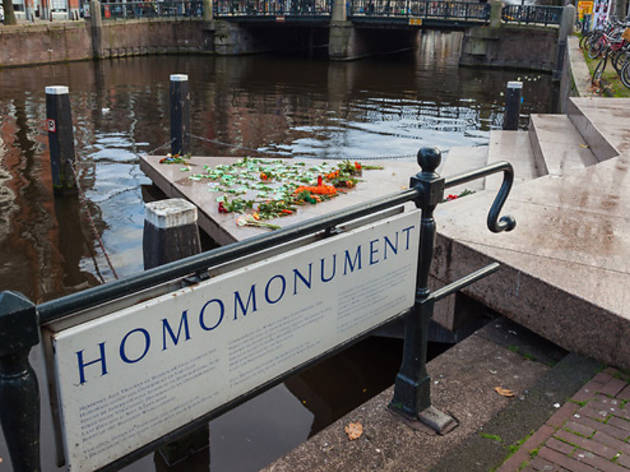
Time Out 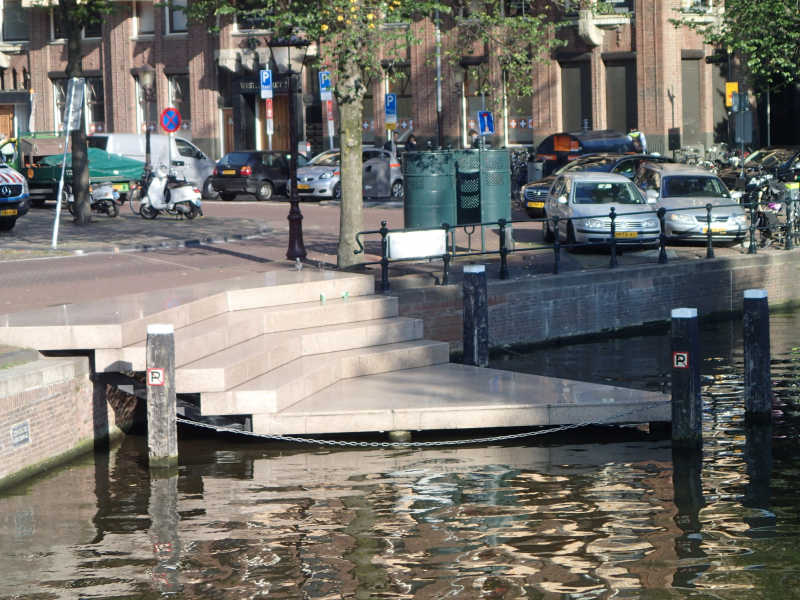
Wikimapia







